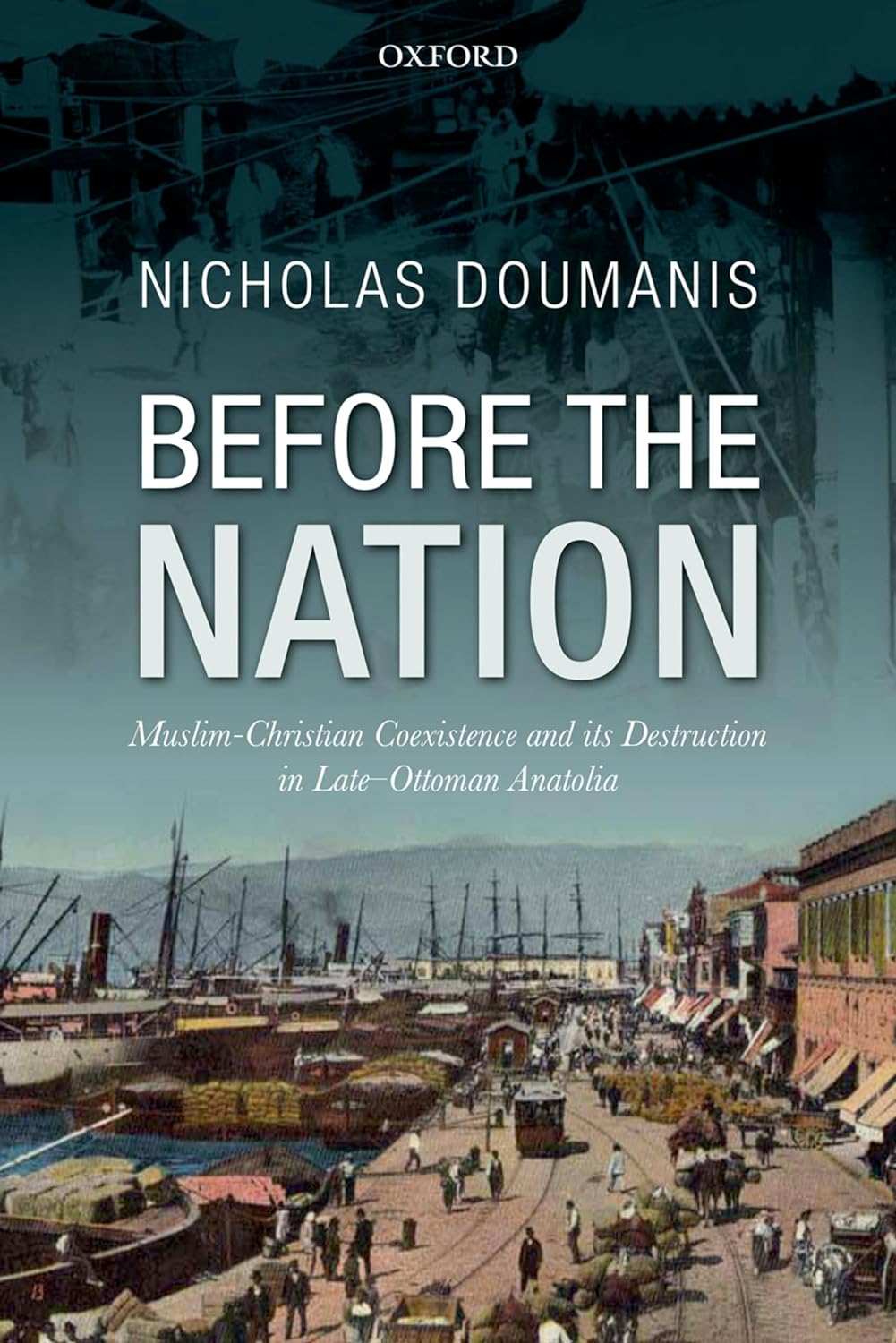General News
Meropi Kyriacou Honored as TNH Educator of the Year
NEW YORK – Meropi Kyriacou, the new Principal of The Cathedral School in Manhattan, was honored as The National Herald’s Educator of the Year.

For those interested in the history of the Greeks, there are a great many books available to add to your reading list. Whether the authors focus on a specific topic or era, the insights of scholars on historical subjects can often highlight aspects of the past that offer perspective on the present.
The Edinburgh History of the Greeks, 20th and Early 21st Centuries: Global Perspectives by Antonis Liakos and Nicholas Doumanis is a new and innovative account of modern Greek history covering the last 100 years. The book draws on recent research on popular culture, social memory and other areas of innovative analysis and details the full significance of the changing experiences of women throughout the century while also incorporating the history of Cyprus and the experiences of Greek communities in the diaspora, whose histories were indelibly tied with the Greek nation.
Dealing with the tumultuous yet transformative era in Greek history, the book highlights the 20th century when most Greeks abandoned the countryside for the cities or the expanding global diaspora. Greek and Cypriot societies became urbanized, secularized and more ‘western’ as they faced one crisis after another, experiencing two destructive war decades (1912–1922 and 1940–1949), the illegal Turkish invasion of Cyprus in 1974, and the more recent economic crises.

Focusing on the relationship between state and society, as well as on the Greeks’ place in the wider world, this volume considers how Greeks have engaged with global change and the impact of international factors on their lives.
Antonis Liakos is Professor Emeritus as the University of Athens, where he taught contemporary history, as well as theory of history. He was chair of the International Commission of History and Theory (2010-2015), editor of Historein, co-founder of the Department of History and Archaeology of the University of Thessaly, and author of numerous books, including The Greek Twentieth Century (Polis 2020 – in Greek) and the prize-winning book Apocalypse: Utopia and Historical Knowledge (Polis 2011 – in Greek). He is now completing a book on the formation of a canon of history in world historiography.
Nicholas Doumanis is Hellenic Foundation Chair of Hellenic Studies and Professor of History at the University of Illinois, Chicago. He taught world history at the University of New South Wales between 2001 and 2022. His books include The Oxford Handbook of European History 1914-1945 (Oxford University Press, 2016), Before the Nation: Muslim and Christian Coexistence and its Destruction in the Late Ottoman Empire (Oxford University Press, 2013), A History of Greece (Palgrave Macmillan, 2010), and Myth and Memory in the Mediterranean (Macmillan, 1997). He is also completing a history of the eastern Mediterranean.
Doumanis’ Before the Nation: Muslim-Christian Coexistence and Its Destruction in Late-Ottoman Anatolia explores the common practice of survivors of ethnic cleansing and even genocide speaking nostalgically about earlier times of intercommunal harmony and brotherhood. “After being driven from their Anatolian homelands, Greek Orthodox refugees insisted that they ‘lived well with the Turks’, and yearned for the days when they worked and drank coffee together, participated in each other’s festivals, and even prayed to the same saints,” as noted in the book’s description. “Historians have never showed serious regard to these memories, given the refugees had fled from horrific ethnic violence that appeared to reflect deep-seated and pre-existing animosities. Refugee nostalgia seemed pure fantasy; perhaps contrived to lessen the pain and humiliations of displacement.”
In the book, Doumanis argues that there is more than a grain of truth to these nostalgic traditions and “points to the fact that intercommunality, a mode of everyday living based on the accommodation of cultural difference, was a normal and stabilizing feature of multi-ethnic societies.”
“Refugee memory and other ethnographic sources provide ample illustration of the beliefs and practices associated with intercommunal living, which local Muslims and Christian communities likened to a common moral environment,” according to the book’s description.
Utilizing an oral archive containing interviews with over 5,000 refugees, Doumanis “examines the mentalities, cosmologies, and value systems as they relate to cultures of coexistence.” He also “rejects the commonplace assumption that the empire was destroyed by intercommunal hatreds” and “emphasizes the role of state-perpetrated political violence which aimed to create ethnically homogenous spaces, and which went some way in transforming these Anatolians into Greeks and Turks.”
The books mentioned above are available online.
NEW YORK – Meropi Kyriacou, the new Principal of The Cathedral School in Manhattan, was honored as The National Herald’s Educator of the Year.

MELBOURNE, Australia (AP) — More than 100 long-finned pilot whales that beached on the western Australian coast Thursday have returned to sea, while 29 died on the shore, officials said.
"How did you find Greece?" a friend asked me, after my recent return to New York from a trip there.
On Monday, April 22, 2024, history was being written in a Manhattan courtroom.
PARIS - With heavy security set for the 2024 Paris Olympic Games during a time of terrorism, France has asked to use a Greek air defense system as well although talks are said to have been going on for months.
PARIS (AP) — Paris has a new king of the crusty baguette.